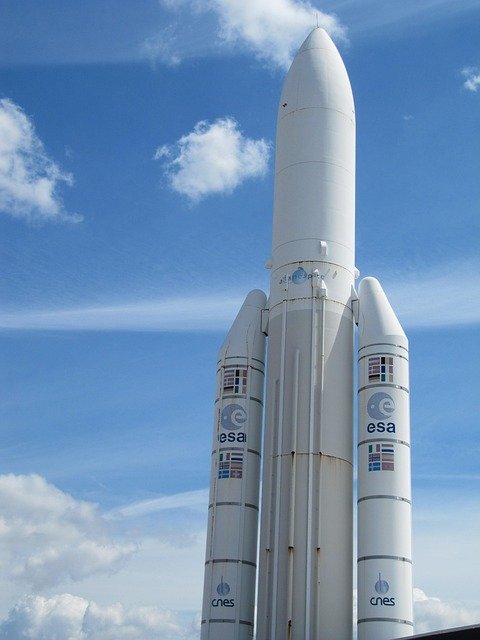Take Off with a Degree in Aerospace Engineering
Soar to new heights with an Aerospace Engineering Degree. This program will immerse you in the science and technology behind aircraft and spacecraft design, testing, and production. As the aviation and space exploration sectors continue to grow, a degree in aerospace engineering can open doors to high-demand and exciting career opportunities.

What Courses or Degree Opportunities Are Available?
Aerospace engineering programs typically offer both undergraduate and graduate degree opportunities, each designed to build comprehensive technical expertise. Bachelor’s degree programs usually span four years and cover fundamental subjects including aerodynamics, propulsion systems, materials science, structural analysis, and flight mechanics. Students also study calculus, differential equations, physics, and computer programming as foundational requirements.
Graduate programs provide specialized focus areas such as astronautics, aeronautics, guidance and control systems, or computational fluid dynamics. Many universities offer both Master of Science and doctoral programs, allowing students to conduct advanced research in cutting-edge areas like hypersonic flight, electric propulsion, or autonomous aircraft systems. Some institutions also provide dual-degree options combining aerospace engineering with business administration or other engineering disciplines.
Training Programs and Practical Experience
Successful aerospace engineering programs emphasize hands-on training programs alongside theoretical coursework. Laboratory work forms a crucial component, where students gain experience with wind tunnels, flight simulators, materials testing equipment, and computer-aided design software. Many programs require capstone design projects where student teams work on real aerospace challenges, often in partnership with industry sponsors.
Internship opportunities represent another vital aspect of aerospace engineering education. Major aerospace companies, government agencies, and research institutions regularly recruit students for summer internships and cooperative education programs. These experiences provide invaluable exposure to professional engineering practices, industry standards, and cutting-edge technologies while building networks that often lead to full-time employment opportunities.
Strong Career Growth and Compensation Prospects
The aerospace engineering field offers exceptional career growth potential with diverse pathways across multiple industries. Entry-level positions typically involve design analysis, testing, or project support roles, while experienced engineers advance to lead project management, research and development, or specialized technical positions. Career progression often includes opportunities for professional engineering licensure and specialized certifications.
Employment growth in aerospace engineering continues to outpace many other engineering disciplines, driven by increasing demand for fuel-efficient aircraft, expanding space exploration initiatives, and growing defense technology needs. Engineers can pursue careers in commercial aviation, space exploration, defense contractors, government agencies, or emerging sectors like urban air mobility and commercial space tourism.
Starting salaries for aerospace engineers typically range from $65,000 to $80,000 annually, with significant variation based on location, employer type, and educational background. Mid-career professionals often earn between $90,000 and $130,000, while senior engineers and managers can exceed $150,000 annually. Government positions may offer additional benefits and job security, while private industry roles often provide higher compensation potential and stock options.
Geographic location significantly impacts compensation levels, with aerospace hubs like Seattle, Los Angeles, Houston, and Huntsville typically offering premium salaries to offset higher living costs. International opportunities also exist, particularly with global aerospace companies expanding operations worldwide.
The field’s compensation reflects the high level of technical expertise required and the critical nature of aerospace systems. Engineers working on classified defense projects or specialized space missions often command premium salaries due to security clearance requirements and specialized knowledge demands.
Specialization Areas and Career Paths
Aerospace engineering encompasses numerous specialization opportunities, each offering unique career trajectories. Aeronautical engineering focuses on atmospheric flight vehicles, including commercial aircraft, military jets, helicopters, and emerging urban air mobility solutions. Astronautical engineering concentrates on spacecraft, satellites, launch vehicles, and space exploration systems.
Additional specializations include propulsion systems engineering, avionics and control systems, structural design, and aerospace materials development. Each area requires specific technical knowledge while building upon core aerospace engineering principles, allowing professionals to become experts in their chosen domains while maintaining broad industry applicability.
Educational Requirements and Prerequisites
Most aerospace engineering positions require at least a bachelor’s degree from an accredited engineering program. Strong mathematical and scientific foundations are essential, with high school preparation including advanced mathematics, physics, and chemistry courses. Many successful students also benefit from computer programming experience and strong communication skills.
Graduate education becomes increasingly important for research positions, advanced technical roles, and leadership opportunities. Professional engineers often pursue continuing education throughout their careers to stay current with rapidly evolving technologies and industry standards. Many engineers also obtain professional engineering licenses, particularly those working on projects affecting public safety or seeking consultant roles.
The combination of rigorous technical education, practical training opportunities, and strong industry demand makes aerospace engineering an excellent choice for students passionate about flight, space exploration, and advanced technology development. This field offers the unique opportunity to work on projects that push the boundaries of human achievement while building a rewarding and well-compensated career.




